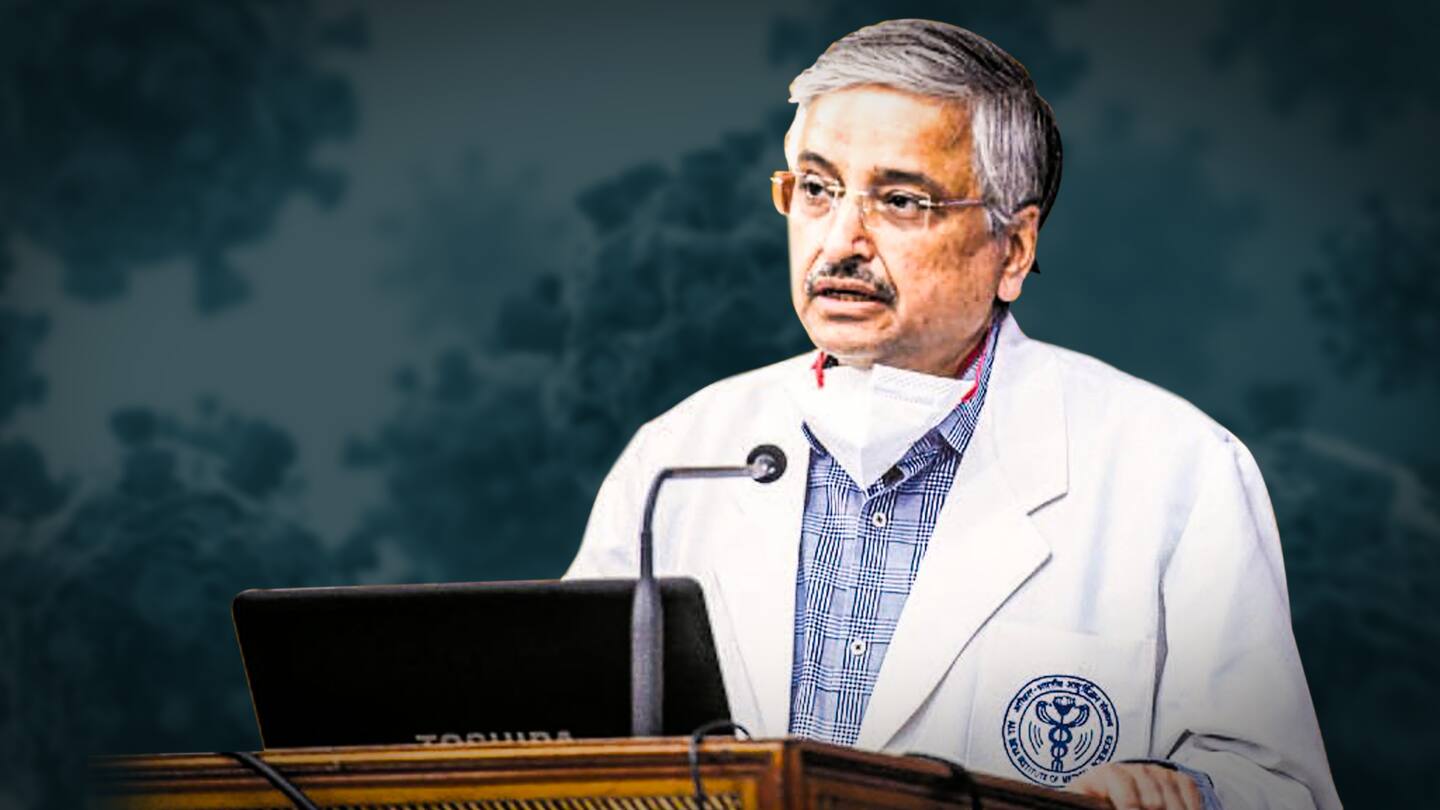
India may see third COVID-19 wave; lockdown required: AIIMS chief
What's the story
All India Institute of Medical Sciences (AIIMS) Director Dr. Randeep Guleria on Tuesday said that India may see a third wave of the COVID-19 pandemic if the virus continues to mutate.
With such mutations, the virus may develop an immune escape mechanism.
Hence, Dr. Guleria said there is a need for an "aggressive lockdown," adding that night curfews and weekend lockdowns are inadequate measures.
Lockdown
'Lockdown may help decrease number of cases'
Speaking to India Today, Dr. Guleria said that the COVID-19 pandemic cannot be curbed by solely improving hospital infrastructure, but it would also require stemming virus transmission and boosting vaccinations.
To cut virus transmission, the AIIMS chief called for a lockdown for a sufficient duration.
"If we decrease the close contact between humans, there is a possibility that the cases will come down."
Current measures
Dr. Guleria calls for at least two-week lockdown
Dr. Guleria said, "If we talk about the lockdown, it has to be for a sufficient duration of at least two weeks. It has to be aggressive. There's no point in having a weekend lockdown or a night curfew."
Notably, as the Centre refuses to impose a nationwide lockdown—perhaps fearing an economic fallout like last year—several states have enforced weekend lockdowns and night curfews.
Quote
'Must ensure essential services are maintained during lockdown'
Dr. Guleria said, "It (lockdown) is something that policymakers need to decide because it's an issue of organizing everything in terms of lives and livelihood and that essential services are maintained, and at the same time, looking after those people who are daily wage workers."
Third wave
Third wave may be expected if virus evolves: Dr. Guleria
If transmission continues at its current rate, the virus may evolve more swiftly.
This, Dr. Guleria said, may cause it to develop a mutation that allows it to escape a human's immune system.
This increases the risk of people getting re-infected, he said, which may trigger the third wave.
However, the third wave may not be as severe as the previous ones, he added.
Mutations
Coronavirus variants more infectious now
Considering the virus is spreading much more rapidly, Dr. Guleria surmised that mutated variants must have a role to play.
"We can't keep on blaming this on the lack of COVID-appropriate behavior," he said, "The curve itself is so sharp, it's vertical."
Other experts have also argued that the new variants can evade immunity. Such immune escape mechanisms may also render vaccines ineffective.
Impact
Third wave likely to hit kids; vaccinate them: Experts
Speaking to The Times of India, pediatric experts urged the government to roll out the vaccination program for the non-adult population soon, lest they contract "a very, very serious form of COVID-19" in the third wave.
"Cities like Mumbai and Pune have seen more children infected in the second wave," said Dr. Deepti Jain, HoD of the pediatric department at GMCH, Nagpur.
States
Independently, some states are currently facing third, fourth waves
Some states in India have independently seen multiple waves of the outbreak.
Madhya Pradesh and Haryana are currently witnessing their respective third waves of the outbreak.
In the national capital of Delhi, the fourth and ongoing wave has proven to be the most brutal, with the city reporting as many as 28,000 daily infections in late April.
Information
Karnataka likely to face third wave in October-November
Karnataka—India's third worst-hit state—will witness its third wave in October-November this year, an analysis by the Technical Advisory Committee (TAC) has predicted. In preparation for a third wave, Maharashtra—India's worst-hit state—has started setting up pediatric COVID-care wards.